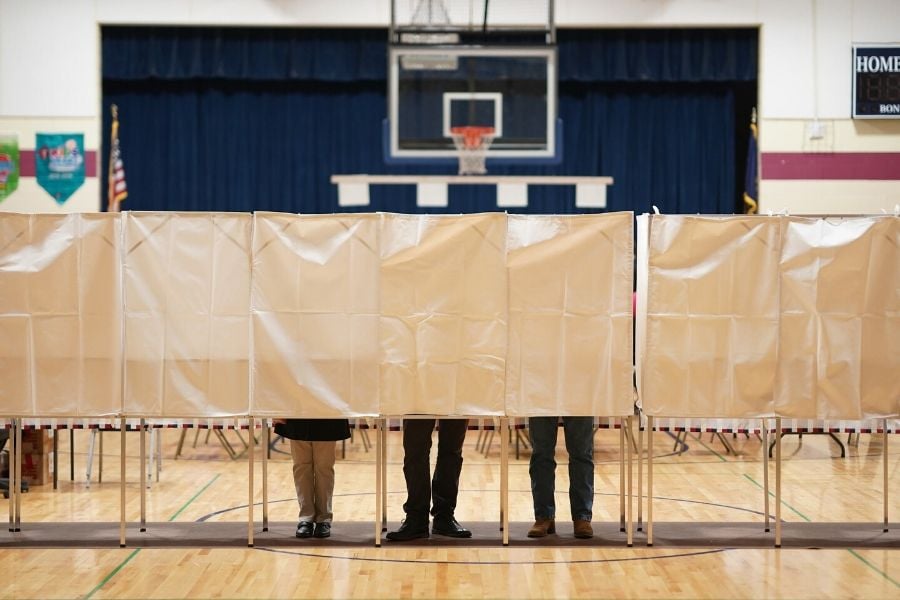
Voting on your phone: New elections app ignites security debate
A startup called Voatz says it has developed an app that would allow users to vote securely from anywhere in the world—but where optimists see a more engaged electorate, critics are warning that the move is dangerously irresponsible
 People vote in the New Hampshire primary at Rye Elementary School in Rye, N.H., on Tuesday, Feb. 11, 2020. A startup says it has developed a smartphone tool through which voters can cast ballots anywhere, but researchers say the app is riddled with security flaws. Image: Chang W. Lee/The New York Times
People vote in the New Hampshire primary at Rye Elementary School in Rye, N.H., on Tuesday, Feb. 11, 2020. A startup says it has developed a smartphone tool through which voters can cast ballots anywhere, but researchers say the app is riddled with security flaws. Image: Chang W. Lee/The New York Times
For more than a decade, it has been an elusive dream for election officials: a smartphone app that would let swaths of voters cast their ballots from their living rooms. It has also been a nightmare for cyberexperts, who argue that no technology is secure enough to trust with the very basis of American democracy.
The debate, long a sideshow at academic conferences and state election offices, is now taking on new urgency. A startup called Voatz says it has developed an app that would allow users to vote securely from anywhere in the world — the electoral version of a moonshot. Thousands are set to use the app in this year’s elections, a small but growing experiment that could pave the way for a wider acceptance of mobile voting.
But where optimists see a more engaged electorate, critics are warning that the move is dangerously irresponsible. In a new report shared with The New York Times before its publication Thursday, researchers at the Massachusetts Institute of Technology say the app is so riddled with security issues that no one should be using it.
In response to the report, the Department of Homeland Security organized a series of briefings in recent weeks for state and local officials who are planning to use Voatz’s technology.
“The choice here is not about turnout,” the report says, “but about an adversary controlling the election result and a loss of voter privacy.”
With security already a dominant theme of the 2020 elections, last week’s debacle at the Democratic caucuses in Iowa — an app used to report results failed to, well, report results — has raised new questions about the role technology should play in American elections and prompted calls for it to be scaled back.
©2019 New York Times News Service




